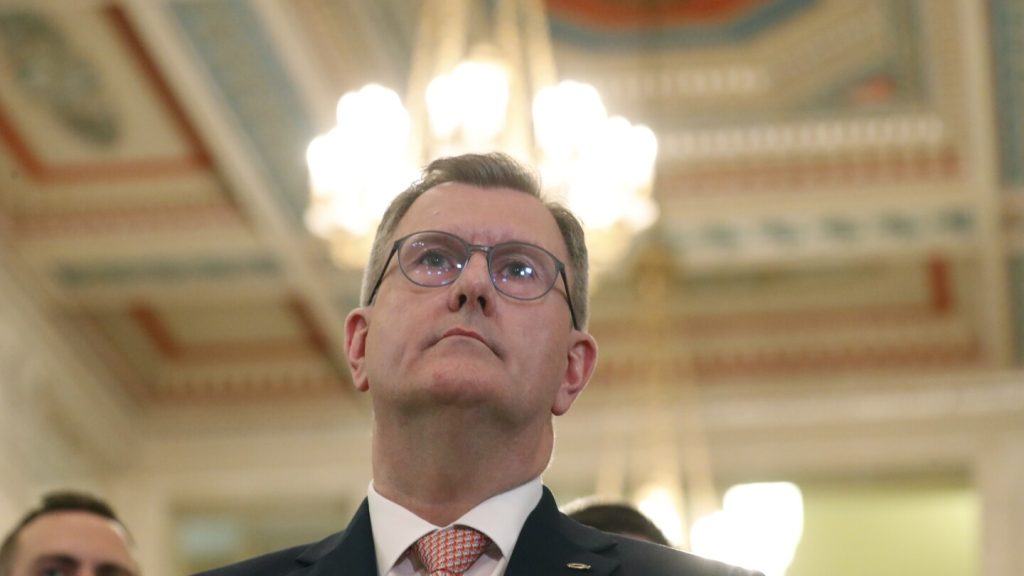Northern Ireland’s power-sharing arrangements were destabilized as Jeffrey Donaldson, the leader of the region’s largest unionist party, stepped down after being charged with historical sexual offenses. This decision has left the Democratic Unionist Party (DUP) in disarray, as Donaldson was a key figure in the unionist movement, which aims to maintain ties with the United Kingdom. His departure comes at a critical time as the party prepares for U.K. parliamentary elections and faces pressure from Sinn Fein, a nationalist party, for reunification with the Republic of Ireland.
Donaldson’s leadership was instrumental in navigating post-Brexit trading arrangements with the European Union, a divisive issue for unionists concerned about their links to the United Kingdom. He had previously withdrawn the DUP from Northern Ireland’s power-sharing government, but the party recently returned following assurances from the British government. Donaldson played a crucial role in securing these agreements, and his absence could weaken the party’s ability to maintain unity and negotiate effectively in the future. Prof. Jonathan Tonge, an expert on Northern Ireland, highlighted the potential challenges that may arise without Donaldson’s leadership.
Gavin Robinson, the deputy leader of the DUP, has been named interim party leader following Donaldson’s resignation. Donaldson’s political career dates back to his involvement in unionist politics at a young age, eventually leading him to become a member of Parliament in the U.K. Since the 1998 Good Friday Agreement, Donaldson has been a prominent figure in Northern Ireland’s political landscape. Despite initial opposition to the agreement, he later joined the DUP in 2004 and rose to a position of leadership within the party. His unexpected departure has raised questions about the future of unionist politics in Northern Ireland.
The impact of Donaldson’s resignation goes beyond the internal dynamics of the DUP, as it has broader implications for Northern Ireland’s political stability. The delicate power-sharing arrangements between unionists and nationalists could be affected by the absence of a prominent figure like Donaldson. The DUP’s ability to represent unionist interests and engage in negotiations with other parties may be compromised without his leadership. As Northern Ireland navigates complex issues such as Brexit, the fallout from Donaldson’s resignation adds another layer of uncertainty to the region’s political landscape.
The upcoming U.K. parliamentary elections will be a critical test for the DUP as they navigate the fallout from Donaldson’s departure. With Sinn Fein advocating for reunification with Ireland, the unionist movement faces significant challenges in maintaining support and unity. The void left by Donaldson’s exit will likely impact the party’s ability to rally its base and negotiate effectively on behalf of unionist interests. As the political situation in Northern Ireland continues to evolve, the absence of a strong leader like Donaldson could have far-reaching consequences for the region’s future path.
Despite the uncertainties surrounding Donaldson’s resignation, the DUP remains focused on maintaining its position within Northern Ireland’s political landscape. The appointment of an interim leader and efforts to stabilize the party indicate a commitment to upholding unionist priorities and engaging in constructive dialogue with other political entities. As Northern Ireland navigates the aftermath of Donaldson’s departure, the resilience of its power-sharing arrangements and the ability of parties to work together will be tested. The legacy of Donaldson’s leadership and the challenges ahead for the DUP underscore the delicate balance of politics in Northern Ireland and the need for strategic engagement to address complex issues facing the region.


